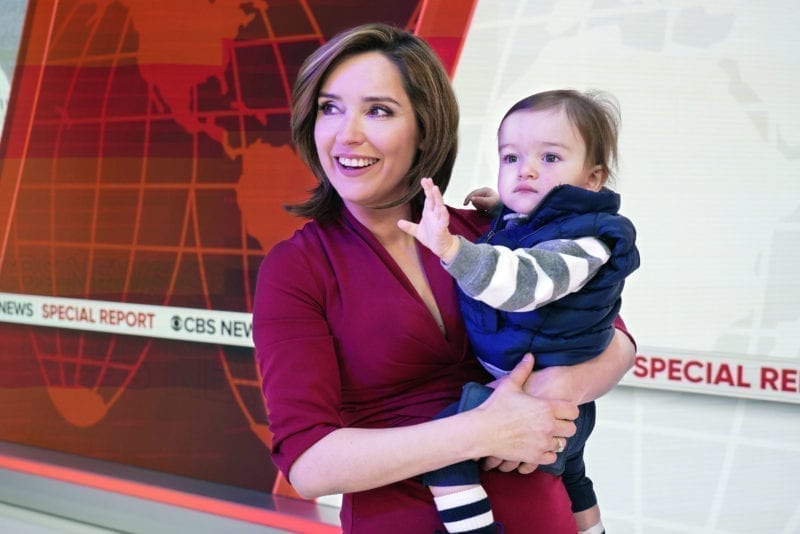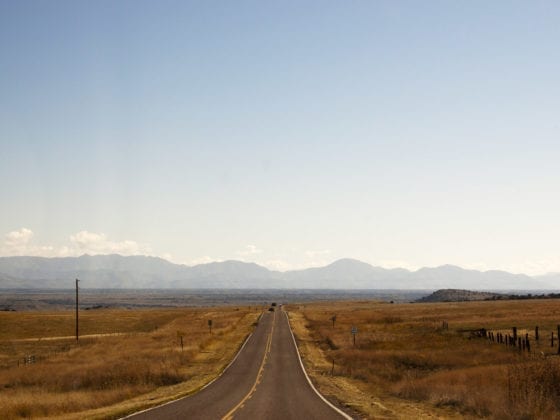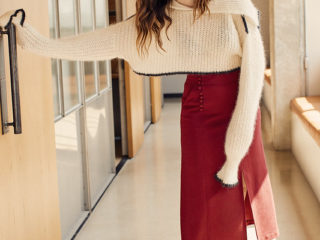“Real Women, Real Work” is a Darling series about everyday women who work in various fields including business, entertainment, science and education. We want to get to know the WHY behind their WHAT and get an inside look into different industries.
The news cycle for the last few months has been never-ending. COVID-19. Black Lives Matter. The 2020 Election.
No one feels the seemingly relentless waves of social unrest and economic change as keenly perhaps as those tasked with collating and delivering the news to us. Margaret Brennan, the Face The Nation moderator and Senior Foreign Affairs Correspondent for CBS News, is not only the youngest anchor on the Sunday morning news cycle, but the only female to headline such a pivotal show. Based in Washington D.C., Brennan and the Face the Nation team have been working remotely (with the exception of broadcasting days in the studio) to cover breaking news across the country and around the world.
Brennan, who is originally from Connecticut, attended the University of Virginia for her undergraduate education. Before joining CBS News, she was a producer and then a reporter for CNBC for seven years. She was also a contributor to MSNBC and NBC’s Today Show and Nightly News from 2005-2009 and an anchor at Bloomberg shortly after. Today, she is sharing with Darling about her career in journalism and how her passion for global affairs and democracy turned into her profession, as well as key values to hold and live by during what must be described as a pivotal time in our nation’s history. Read her interview below with Darling’s Teresa Miller Archer.
 Teresa: I see that at university you obtained a B.A. in Foreign Affairs and Middle East Studies with a minor in Arabic. Entering school, was journalism already your goal or did you have other aspirations?
Teresa: I see that at university you obtained a B.A. in Foreign Affairs and Middle East Studies with a minor in Arabic. Entering school, was journalism already your goal or did you have other aspirations?
Margaret: I did not know specifically what I wanted to be when I went to college as an undergrad at the University of Virginia, but I knew what I was interested in. I didn’t know I was going to be a journalist, but I knew generally the things that made me passionate and that’s how I pursued things in terms of my studies. I wanted to figure out how to turn my interests into some kind of vocation, but certainly something that I was personally invested in. I wasn’t sure what that would be.
I generally thought I’d be, perhaps, something having to do with diplomacy, given that I was so interested in social movements and things that accounted for these historic moments of change. I studied abroad in Jordan as part of my program and that first person experience changed things for me in such a dramatic way. It’s completely different to put what you’ve learned in the classroom into real life. It is the most humbling thing in the world to try to speak a language that is not your first language and stumble through.
It’s completely different to put what you’ve learned in the classroom into real life.
It was an amazing experience traveling throughout the Middle East at that time period. I went to Damascus, Amman and to Israel and really used all the things that I had been experiencing in the classroom and put them into real life. It changed my perspective. I just came back and I said, “This is so important, and it’s so different than analyzing and speaking from afar.”
My mom always teased me about news coverage not fully grasping a situation or putting it in context. Because I had this area of expertise, my mom was like, “Why don’t you try that?” I interned at CNN one summer down in Atlanta, at their international news desk—just answering phones and talking to reporters—and I absolutely loved it. That was what made me decide I wanted to pursue journalism and be in a newsroom.
Teresa: Right, so something about being in that atmosphere and watching how people, kind of, were engaged with that world struck a chord for you.
Margaret: I liked feeling like I was in the middle of something, in the center—in this nerve center of a newsroom and watching seats come in, watching reporters call in and share what they’re seeing all around the world. There was something electric about that.
I also saw the power that television has as a passport for most of America. Most Americans don’t get to go on the plane, travel and do the things that reporters get to do and experience first-hand. I saw power in that because people are captured by experience and image. It’s a tremendous toolset to be able to use that.
I also saw the power that television has as a passport for most of America.
Teresa: You traveled in 2002 to Jordan?
Margaret: It was pre 9/11. It was 2000 when I was there and the summer of 2001 was when I interned at CNN.
Teresa: That’s fascinating. I was living in Vienna, Austria at the time of September 11. Would you say that your recent travel to the Middle East had an effect on the impetus you felt to tell that story more fully?
Margaret: What it did to me and my understanding—and maybe this remains idealistic—was affirm my belief that there are things that you can’t afford not to know. You can’t afford not to know how America represents itself and engages with the rest of the world, because it’s representing you.
You can’t afford not to know how America represents itself and engages with the rest of the world, because it’s representing you.
You know, years later, this also got driven home for me while covering Wall Street. You can’t afford not to know what’s happening in the business world. These things are treated like separate sections of the newspaper, but they’re not separate sections of life. They actually all intersect, and they all overlap. So that experience did change things for me in certain ways, but it also made my university degree more valuable to other people on the outside, suddenly. I was graduating and my dad wanted me to go work on Wall Street, and I was like, “Nope, I need to pursue journalism.” I took a job, an entry-level job at CNBC.
Teresa: Those entry-level jobs can turn out to be so valuable in and of themselves. Now you’re the face and voice of CBS’ Face the Nation. If you could say you had one goal, in terms of what you are trying to accomplish now as an anchor, what is that?
Margaret: You can get your information pretty much everywhere these days in whatever bite-sized form you’re looking for, but the context and the perspectives that we deliver, I think, are the purposes of our show. Our role at this moment is helping people understand what’s going on. Everyone has an opinion these days. That’s not what we’re doing.
Our role at this moment is helping people understand what’s going on.
We’re trying to get the information for people to understand the issues that are changing the world and in an incredibly fast-paced way. We’re in an incredible moment of change. I know we’re in the center of something right now, which is this moment in time where our world is changing so dramatically on so many different levels. I like to feel that we’re serving a purpose in helping to keep people informed about that.
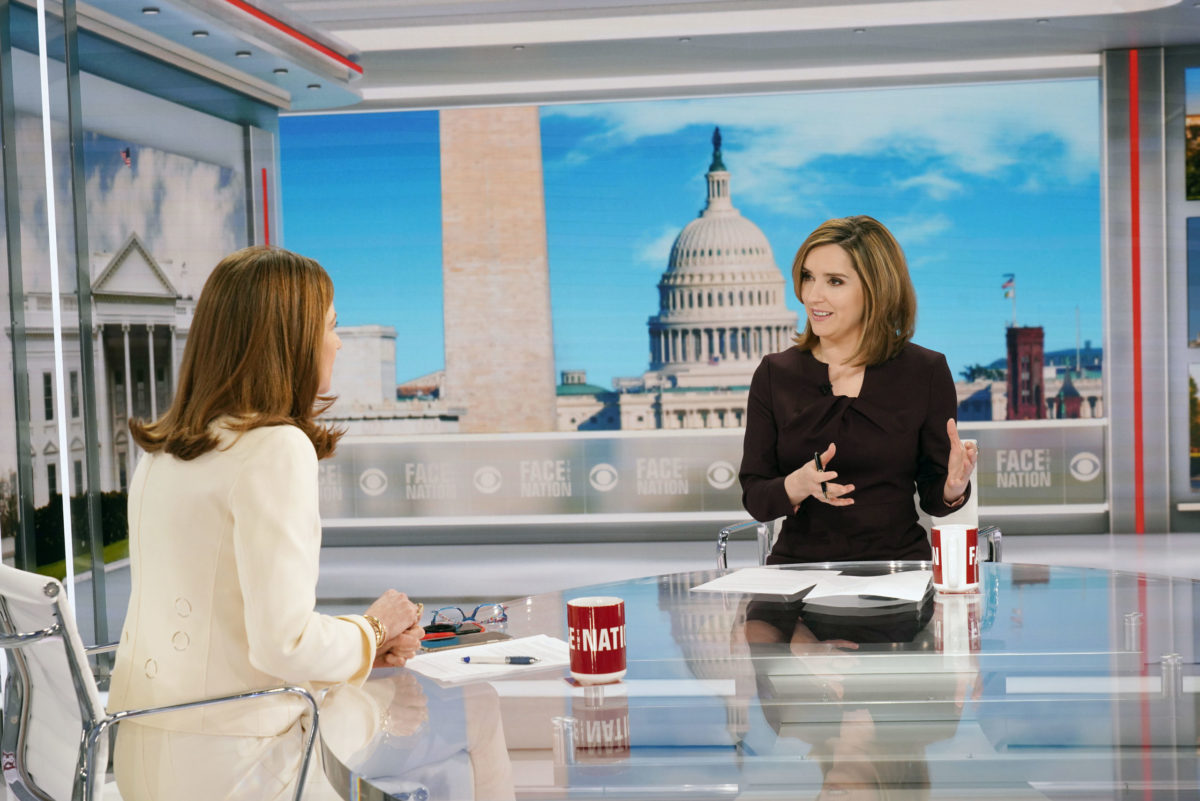
Teresa: Yeah, you’re conveying information or you’re trying to present as much for the individual and the group to consume to come up with their own conclusion?
Margaret: The role and the purpose of journalism, in terms of the functioning in our democracy, is to keep the elector informed. It is not to entertain them. Particularly in a moment as terrifying as this one is for so many people to be looking at economic crisis and health crisis, my role is not to make that sexy or scary. My role is to inform, explain and give you something so by the end of the program, you can say, “I thought about that differently,” or “I learned this little bit of information.”
There’s a crisis of confidence in so many of our institutions right now, including the media. If you just look at polling data and public approval, it shows. I feel a responsibility that we have to win that back, and we have to prove that every broadcast.
There’s a crisis of confidence in so many of our institutions right now, including the media.
Teresa: I have been contemplating how different fields are not just undervalued, but definitely distrusted across the board, among friends of mine and highly intelligent people who are starting to lose faith. Do you have a system of values or a code that you live by in terms of your role as a journalist? Is that something you consciously have created?
Margaret: Yes, we talk about that. I do feel there is a tremendous responsibility. My executive producer and I talk about that with even just trying to figure out which guests we put on. Who is it worth the public’s time to hear from? Do they need to hear from this person or is it just going to be a bunch of talking points? How essential are they to that decision? These are really important moments and giving a clear, calm perspective to it is, I think, what we owe people.
Teresa: Right, being clear and calm. I grew up watching Christiane Amanpour on the BBC.
Margaret: Oh, she’s amazing.
Teresa: Yes, she was my absolute favorite journalist to watch relay information. It’s unusual to see a woman holding space and leading in the kind of position that you do. Recently, there has been a lot of conversation around women in journalism, television and film. What have you found to be the most difficult—or most exciting—as you’ve stepped into your space?
Margaret: Gender is a difficult thing to sometimes speak on because, particularly in television, there’s the idea of how someone’s receiving you, not necessarily how you’re projecting yourself and figuring that out. We have a majority female staff for Face the Nation, and it’s interesting. I do think it brings a different perspective. I think there is a seeking to understand and a seeking to listen. Obviously, diversity of staff always does that. That’s the value of diversity.
We have people on our staff who recently had kids—I have a 21-month-old son and we have another producer who has a very young son around a similar age—and we are having conversations about reopening the economy and knowing that we can’t really do that until we help figure out the childcare issue. That’s not actually just a “women’s issue” right now [childcare]. It affects the U.S. economy. When you look at the majority of layoffs, the numbers have been heavily weighted toward women. How do you get those women back to work? If they have to educate their kids and watch their kids, all of a sudden that becomes, in some ways, a state’s problem and the federal government’s problem.
I think those things are said, but perhaps they’re understood maybe a little differently when we have people on our staff who are experiencing that. CBS has been wonderful in viewing that as a positive thing. I’m lucky that Lesley Stahl broke that glass ceiling in the ‘80s when she was the first female host of Face the Nation. We have a female president of the network and a female anchor of the evening news and a lot of really talented people across the board.
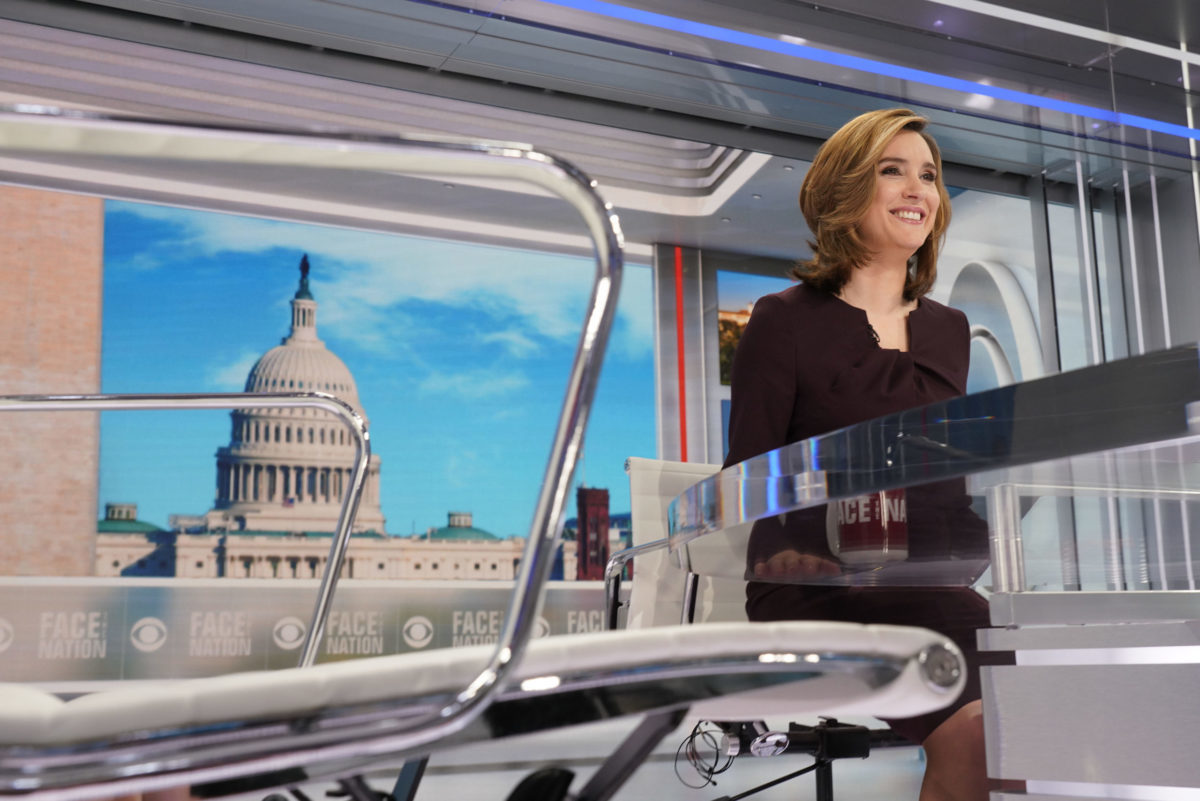
Teresa: I can see how dramatically different the landscape in media is for women now than it was when I was a young girl, which is so heartening. You are probably receiving much more legitimate content than the average American has because we get flooded with so much—what I would call—illegitimate content. What are you seeing that is intriguing or even exciting in terms of what’s happening with the nation? What would you say is shaping us in a way that you see as having potential; a positive fallout instead of a negative fallout?
Margaret: We don’t have a real appreciation for the change that is happening now in terms of what it’s going to mean politically in shaping our expectations for whoever is in office and however we want that government to be run. If you look at the ripple effects of the financial crisis in Europe and the kind of debt crisis it helps to trigger or contribute to and the political movements that came out of that. None of us in that moment of “can we just survive till the end of the week” sense of immediacy had an appreciation for the ripple effect that would follow.
At this moment, we are going through a really painful process. I don’t know where it’s headed. That’s scary and overwhelming sometimes, when you have so much that’s unknown, but I am hopeful that the change is so abrupt and breathtaking that the public can’t afford not to be informed anymore. You can’t afford not to be paying attention right now. You may not be paying attention to everything, but you can’t afford to be shutting down. That’s tremendous, and that’s something that gives me hope—that people are becoming more invested.
You can’t afford not to be paying attention right now. You may not be paying attention to everything, but you can’t afford to be shutting down. That’s tremendous, and that’s something that gives me hope—that people are becoming more invested.
Teresa: I have been, actually, really moved by how people have started looking at local politics and local elections again for the first time in a long time, being interested in their local area and what the policies are. If you could look 20 years into the future and if you could see a dream fulfilled for America from your perspective, what would that be?
Margaret: I think restoring faith in our institutions—earning that back, winning that back and winning back the faith in our democracy. Specifically with my industry in journalism, I would want to help strengthen us. The country may look very different 20 years from now. For my son, I don’t know what he’s going to be looking at, but I hope that he has the certainty and the support of those institutions functioning well for all of America and that there’s faith there. I think that’s the worst part when you get to the point of apathy and when you just don’t know who to believe or what to believe. I think restoring that would go very far.
Teresa: What would you say the effect of becoming a mother, if any, has had on how you perceive your role? Do you think that it affected your capacity to imagine the future in that way?
Margaret: I’m sure it has. I’m wondering, like, “What is he going to be looking at and experiencing?” I’m lucky that my son is so young right now that he doesn’t really know what’s going on, you know? His world is within the walls of our house. I have thought, “Wow, if I had to be educating him at our kitchen table right now instead of just working on walking, how much harder that would be!” I definitely appreciate more of what families go through to get things done.
Teresa: If you looked 20 years into the future and you see yourself, what do you want to see in terms of growth, or what do you hope for yourself?
Margaret: I hope that I’m a great mom and a great partner. I hope that I’m serving a purpose that helps to make our society better. I’ve never been specific on exactly what that means. It’s just knowing and feeling that satisfaction or that fulfillment of being those things.
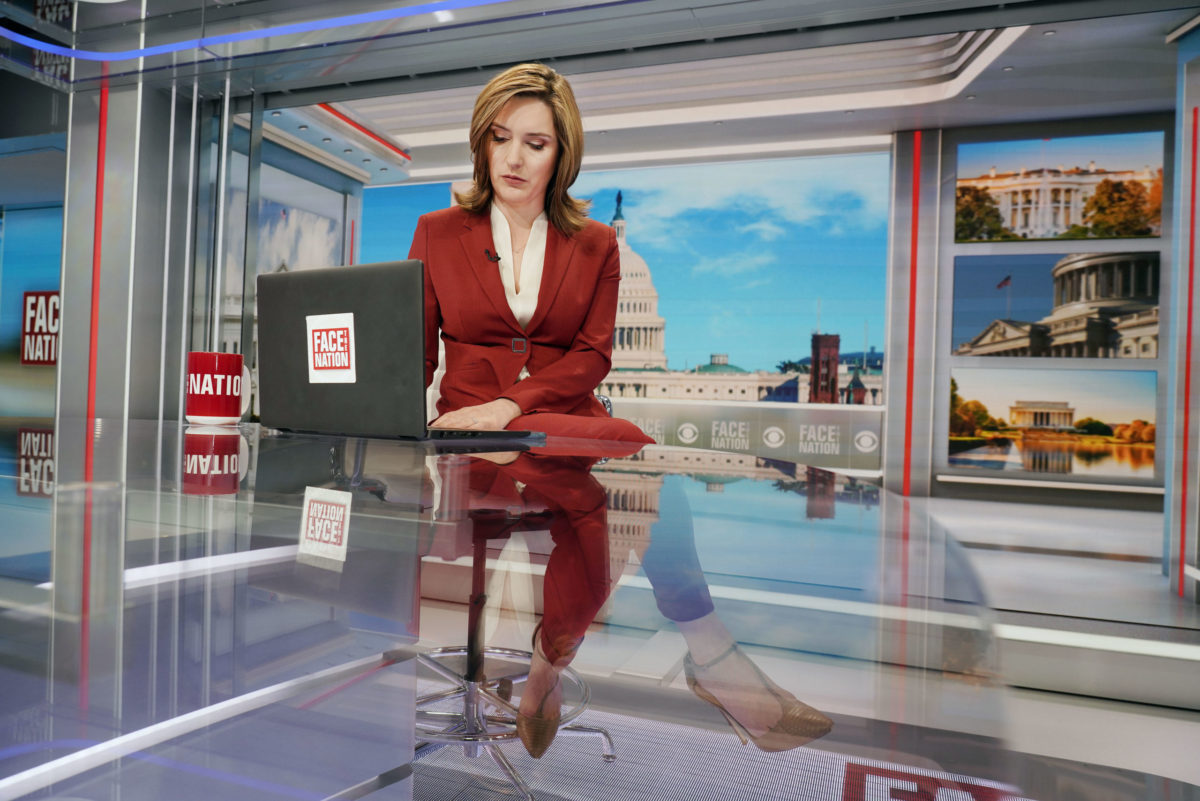
Teresa: To our readers who are coming out of college and going into jobs, what would one piece of advice for a young woman in her 20s going into whatever industry be?
Margaret: I think, ultimately, a big part of success is endurance. It’s not just achieving the one thing on the checklist. It’s the five next things and keeping that in perspective. If, you know, the job you’re pitching for or the interview you hoped for didn’t happen, then that’s not setting you back. OK, move on. Charge forward. It’s a longer endurance rate.
A big part of success is endurance. It’s not just achieving the one thing on the checklist. It’s the five next things and keeping that in perspective.
I’d say, think about what you want and what fulfills you, what you need. Think about what you will say if you get into a position where, all of the sudden, you’re in the workforce and you are asked what is it you like to do. Make sure you know how to answer that question.
Also, know how to answer or think about how you’d get out of some of those uncomfortable situations that women, in particular, face, especially coming out of the #MeToo movement. Don’t just think of that as something on paper. Think about and anticipate the situations that might come your way, that might try to set you off of that path of achievement and that you’re gonna make sure it don’t stop you. You can get around it. Make certain that somebody else’s problems don’t become yours.
Think about and anticipate the situations that might come your way, that might try to set you off of that path of achievement and that you’re gonna make sure it don’t stop you.
Teresa: Wow, that’s really great advice. Margaret, thank you so much for your time. I really appreciate it in the middle of what I know is probably gonna be one of the busiest eras of journalism. So I have been very thankful that we’ve been able to find a time for this.
Margaret: Thanks for making time.
Image via Chris Usher/CBS News

